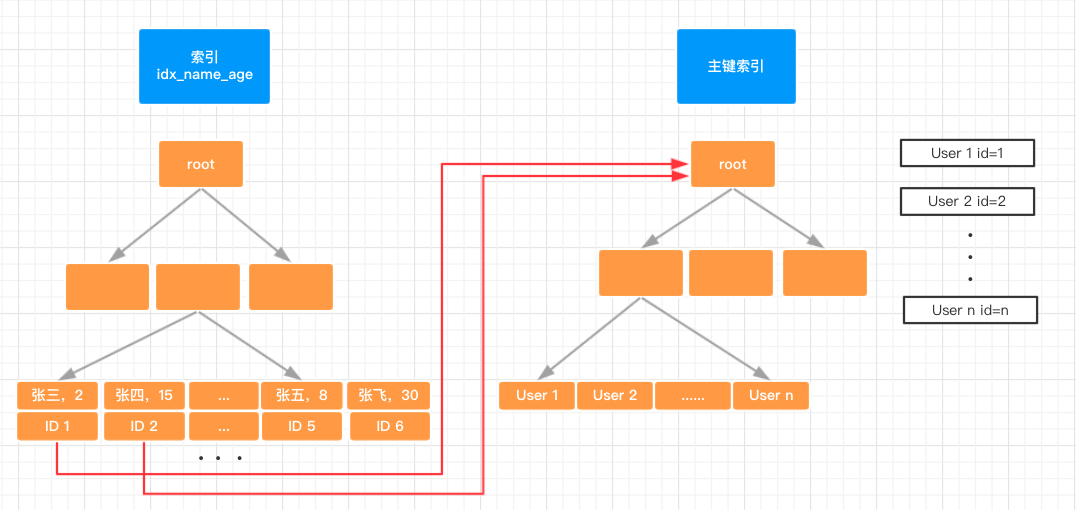
PgFincore
A set of functions to manage pages in memory from PostgreSQL
A set of functions to handle low-level management of relations using mincore to
explore cache memory.
DESCRIPTION
With PostgreSQL, each Table or Index is splitted in segments of (usually) 1GB,
and each segment is splitted in pages in memory then in blocks for the
filesystem.
Those functions let you know which and how many disk block from a relation are
in the page cache of the operating system. It can provide the result as a VarBit
and can be stored in a table. Then using this table, it is possible to restore
the page cache state for each block of the relation, even in another server,
thanks to Streaming Replication.
Other functions are used to set a POSIX_FADVISE flag on the entire relation
(each segment). The more usefull are probably WILLNEED and DONTNEED which
push and pop blocks of each segments of a relation from page cache,
respectively.
Each functions are call with at least a table name or an index name (or oid)
as a parameter and walk each segment of the relation.
DOWNLOAD
You can grab the latest code with git:
git clone git://git.postgresql.org/git/pgfincore.git
or
git://github.com/klando/pgfincore.gitAnd the project is on pgfoundry : http://pgfoundry.org/projects/pgfincore
INSTALL
From source code:
make clean
make
su
make installFor PostgreSQL >= 9.1, log in your database and:
mydb=# CREATE EXTENSION pgfincore;For other release, create the functions from the sql script (it should be in
your contrib directory):
psql mydb -f pgfincore.sqlPgFincore is also shipped with Debian scripts to build your own package:
aptitude install debhelper postgresql-server-dev-all postgresql-server-dev-9.1
# or postgresql-server-dev-8.4|postgresql-server-dev-9.0
make deb
dpkg -i ../postgresql-9.1-pgfincore_1.1.1-1_amd64.debPgFincore is packaged for RPM at http://yum.postgresql.org/
PgFincore is packaged for debian at http://pgapt.debian.net/
EXAMPLES
Here are some examples of usage. If you want more details go to Documentation_
Get current state of a relation
May be useful:
cedric=# select * from pgfincore('pgbench_accounts');
relpath | segment | os_page_size | rel_os_pages | pages_mem | group_mem | os_pages_free | databit | pages_dirty | group_dirty
--------------------+---------+--------------+--------------+-----------+-----------+---------------+---------+-------------+-------------
base/11874/16447 | 0 | 4096 | 262144 | 262144 | 1 | 81016 | | 0 | 0
base/11874/16447.1 | 1 | 4096 | 65726 | 65726 | 1 | 81016 | | 0 | 0
(2 rows)
Time: 31.563 msLoad a table or an index in OS Page Buffer
You may want to try to keep a table or an index into the OS Page Cache, or
preload a table before your well know big query is executed (reducing the query
time).
To do so, just execute the following query:
cedric=# select * from pgfadvise_willneed('pgbench_accounts');
relpath | os_page_size | rel_os_pages | os_pages_free
--------------------+--------------+--------------+---------------
base/11874/16447 | 4096 | 262144 | 169138
base/11874/16447.1 | 4096 | 65726 | 103352
(2 rows)
Time: 4462,936 ms- The column os_page_size report that page size is 4KB.
- The column rel_os_pages is the number of pages of the specified file.
- The column os_pages_free is the number of free pages in memory (for caching).
Snapshot and Restore the OS Page Buffer state of a table or an index (or more)
You may want to restore a table or an index into the OS Page Cache as it was
while you did the snapshot. For example if you have to reboot your server, then
when PostgreSQL start up the first queries might be slower because neither
PostgreSQL or the OS have pages in their respective cache about the relations
involved in those first queries.
Executing a snapshot and a restore is very simple:
-- Snapshot
cedric=# create table pgfincore_snapshot as
cedric-# select 'pgbench_accounts'::text as relname,*,now() as date_snapshot
cedric-# from pgfincore('pgbench_accounts',true);
-- Restore
cedric=# select * from pgfadvise_loader('pgbench_accounts', 0, true, true,
(select databit from pgfincore_snapshot
where relname='pgbench_accounts' and segment = 0));
relpath | os_page_size | os_pages_free | pages_loaded | pages_unloaded
------------------+--------------+---------------+--------------+----------------
base/11874/16447 | 4096 | 80867 | 262144 | 0
(1 row)
Time: 35.349 ms- The column pages_loaded report how many pages have been read to memory
(they may have already been in memoy) - The column pages_unloaded report how many pages have been removed from
memory (they may not have already been in memoy);
SYNOPSIS
pgsysconf(OUT os_page_size bigint, OUT os_pages_free bigint,
OUT os_total_pages bigint)
RETURNS record
pgsysconf_pretty(OUT os_page_size text, OUT os_pages_free text,
OUT os_total_pages text)
RETURNS record
pgfadvise(IN relname regclass, IN fork text, IN action int,
OUT relpath text, OUT os_page_size bigint,
OUT rel_os_pages bigint, OUT os_pages_free bigint)
RETURNS setof record
pgfadvise_willneed(IN relname regclass,
OUT relpath text, OUT os_page_size bigint,
OUT rel_os_pages bigint, OUT os_pages_free bigint)
RETURNS setof record
pgfadvise_dontneed(IN relname regclass,
OUT relpath text, OUT os_page_size bigint,
OUT rel_os_pages bigint, OUT os_pages_free bigint)
RETURNS setof record
pgfadvise_normal(IN relname regclass,
OUT relpath text, OUT os_page_size bigint,
OUT rel_os_pages bigint, OUT os_pages_free bigint)
RETURNS setof record
pgfadvise_sequential(IN relname regclass,
OUT relpath text, OUT os_page_size bigint,
OUT rel_os_pages bigint, OUT os_pages_free bigint)
RETURNS setof record
pgfadvise_random(IN relname regclass,
OUT relpath text, OUT os_page_size bigint,
OUT rel_os_pages bigint, OUT os_pages_free bigint)
RETURNS setof record
pgfadvise_loader(IN relname regclass, IN fork text, IN segment int,
IN load bool, IN unload bool, IN databit varbit,
OUT relpath text, OUT os_page_size bigint,
OUT os_pages_free bigint, OUT pages_loaded bigint,
OUT pages_unloaded bigint)
RETURNS setof record
pgfadvise_loader(IN relname regclass, IN segment int,
IN load bool, IN unload bool, IN databit varbit,
OUT relpath text, OUT os_page_size bigint,
OUT os_pages_free bigint, OUT pages_loaded bigint,
OUT pages_unloaded bigint)
RETURNS setof record
pgfincore(IN relname regclass, IN fork text, IN getdatabit bool,
OUT relpath text, OUT segment int, OUT os_page_size bigint,
OUT rel_os_pages bigint, OUT pages_mem bigint,
OUT group_mem bigint, OUT os_pages_free bigint,
OUT databit varbit, OUT pages_dirty bigint,
OUT group_dirty bigint)
RETURNS setof record
pgfincore(IN relname regclass, IN getdatabit bool,
OUT relpath text, OUT segment int, OUT os_page_size bigint,
OUT rel_os_pages bigint, OUT pages_mem bigint,
OUT group_mem bigint, OUT os_pages_free bigint,
OUT databit varbit, OUT pages_dirty bigint,
OUT group_dirty bigint)
RETURNS setof record
pgfincore(IN relname regclass,
OUT relpath text, OUT segment int, OUT os_page_size bigint,
OUT rel_os_pages bigint, OUT pages_mem bigint,
OUT group_mem bigint, OUT os_pages_free bigint,
OUT databit varbit, OUT pages_dirty bigint,
OUT group_dirty bigint)
RETURNS setof record
DOCUMENTATION
pgsysconf
This function output size of OS blocks, number of free page in the OS Page Buffer.
cedric=# select * from pgsysconf();
os_page_size | os_pages_free | os_total_pages
--------------+---------------+----------------
4096 | 80431 | 4094174pgsysconf_pretty
The same as above, but with pretty output.
cedric=# select * from pgsysconf_pretty();
os_page_size | os_pages_free | os_total_pages
--------------+---------------+----------------
4096 bytes | 314 MB | 16 GBpgfadvise_WILLNEED
This function set WILLNEED flag on the current relation. It means that the
Operating Sytem will try to load as much pages as possible of the relation.
Main idea is to preload files on server startup, perhaps using cache hit/miss
ratio or most required relations/indexes.
cedric=# select * from pgfadvise_willneed('pgbench_accounts');
relpath | os_page_size | rel_os_pages | os_pages_free
--------------------+--------------+--------------+---------------
base/11874/16447 | 4096 | 262144 | 80650
base/11874/16447.1 | 4096 | 65726 | 80650pgfadvise_DONTNEED
This function set DONTNEED flag on the current relation. It means that the
Operating System will first unload pages of the file if it need to free some
memory. Main idea is to unload files when they are not usefull anymore (instead
of perhaps more interesting pages)
cedric=# select * from pgfadvise_dontneed('pgbench_accounts');
relpath | os_page_size | rel_os_pages | os_pages_free
--------------------+--------------+--------------+---------------
base/11874/16447 | 4096 | 262144 | 342071
base/11874/16447.1 | 4096 | 65726 | 408103pgfadvise_NORMAL
This function set NORMAL flag on the current relation.
pgfadvise_SEQUENTIAL
This function set SEQUENTIAL flag on the current relation.
pgfadvise_RANDOM
This function set RANDOM flag on the current relation.
pgfadvise_loader
This function allow to interact directly with the Page Cache.
It can be used to load and/or unload page from memory based on a varbit
representing the map of the pages to load/unload accordingly.
Work with relation pgbench_accounts, segment 0, arbitrary varbit map:
-- Loading and Unloading
cedric=# select * from pgfadvise_loader('pgbench_accounts', 0, true, true, B'111000');
relpath | os_page_size | os_pages_free | pages_loaded | pages_unloaded
------------------+--------------+---------------+--------------+----------------
base/11874/16447 | 4096 | 408376 | 3 | 3
-- Loading
cedric=# select * from pgfadvise_loader('pgbench_accounts', 0, true, false, B'111000');
relpath | os_page_size | os_pages_free | pages_loaded | pages_unloaded
------------------+--------------+---------------+--------------+----------------
base/11874/16447 | 4096 | 408370 | 3 | 0
-- Unloading
cedric=# select * from pgfadvise_loader('pgbench_accounts', 0, false, true, B'111000');
relpath | os_page_size | os_pages_free | pages_loaded | pages_unloaded
------------------+--------------+---------------+--------------+----------------
base/11874/16447 | 4096 | 408370 | 0 | 3pgfincore
This function provide information about the file system cache (page cache).
cedric=# select * from pgfincore('pgbench_accounts');
relpath | segment | os_page_size | rel_os_pages | pages_mem | group_mem | os_pages_free | databit | pages_dirty | group_dirty
--------------------+---------+--------------+--------------+-----------+-----------+---------------+---------+-------------+-------------
base/11874/16447 | 0 | 4096 | 262144 | 3 | 1 | 408444 | | 0 | 0
base/11874/16447.1 | 1 | 4096 | 65726 | 0 | 0 | 408444 | | 0 | 0For the specified relation it returns:
- relpath : the relation path
- segment : the segment number analyzed
- os_page_size : the size of one page
- rel_os_pages : the total number of pages of the relation
- pages_mem : the total number of relation’s pages in page cache.
(not the shared buffers from PostgreSQL but the OS cache) - group_mem : the number of groups of adjacent pages_mem
- os_page_free : the number of free page in the OS page cache
- databit : the varbit map of the file, because of its size it is useless to output
Use pgfincore(‘pgbench_accounts’,true) to activate it. - pages_dirty : if HAVE_FINCORE constant is define and the platorm provides the relevant information, like pages_mem but for dirtied pages
- group_dirty : if HAVE_FINCORE constant is define and the platorm provides the relevant information, like group_mem but for dirtied pages
DEBUG
You can debug the PgFincore with the following error level: DEBUG1 and
DEBUG5.
For example:
set client_min_messages TO debug1; -- debug5 is only usefull to trace each blockREQUIREMENTS
- PgFincore needs mincore() or fincore() and POSIX_FADVISE
LIMITATIONS
PgFincore has a limited mode when POSIX_FADVISE is not provided by the platform.
PgFincore needs PostgreSQL >= 8.3
PgFincore does not work on windows.
SEE ALSO
2ndQuadrant, PostgreSQL Expertise, developement, training and 24x7 support:






